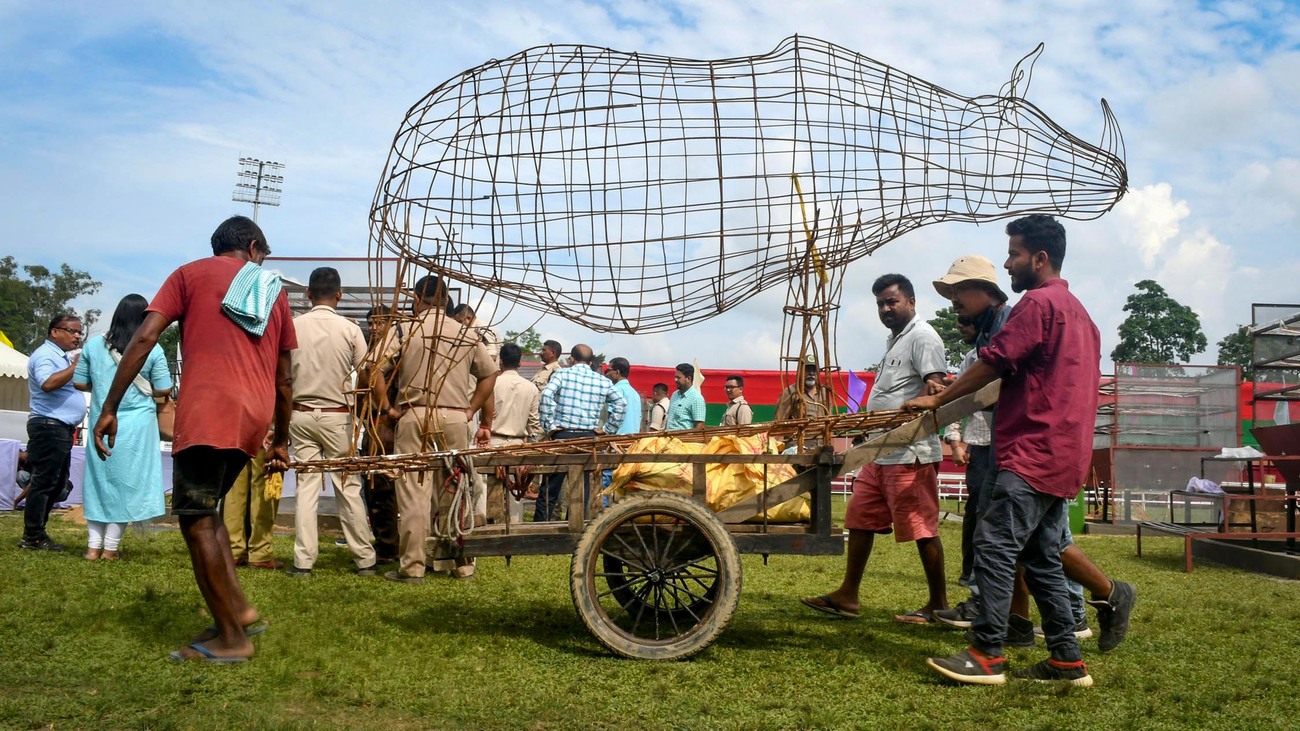Updates
Fin whales safe from harpoons for another year in Iceland
Read moreIndia burns rhino horn stockpile to send strong anti-poaching message

(Assam, India - 22 September 2021) – India’s Assam government has burned almost 2,500 rhino horns—its largest ever stockpile of rhino horns, with the majority seized from poaching and illegal trade.
The destruction of the horns, staged to coincide with World Rhino Day, was carried out to send a message that rhino horns should not be valued—live rhinos and their habitat should be valued.
A total of 2,479 horns, weighing 1,303.25 kgs, were burned in six large pyres this morning in a ceremony attended by 10,000 people. All the horns burned were from Asian rhinos, apart from 15 from African rhinos. Some had been removed from rhinos which died of natural causes. The details of each horn were recorded and barcoded before being burned and the heaviest horn weighed 3.05 kgs. Rhinos are often poached for their horns, made of keratin, for use in traditional Asian medicine.
Assam has the largest population of greater one-horned rhino (also known as Indian rhino) in the world, comprising 2,600 individuals.
Vivek Menon, Founder and Executive Director of Wildlife Trust of India (WTI) and Senior Advisor at the International Fund for Animal Welfare (IFAW), said: “I am thrilled that the Assam Forest Department is taking this bold step to burn rhino horn stocks. This public event is a strong message to potential traders on the futility and criminality of this trade. Kudos to the Assam government for this bold decision! We are proud to have worked with the Assam Forest Department to save the rhino for over 20 years.”
IFAW and WTI have worked with the Assam government since the early 2000s to re-introduce rhinos to Manas National Park, a UNESCO World Heritage site, after they were previously hunted to extinction during years of civil unrest. Through this pioneering rescue, rehabilitation and release project, rhino populations have increased in the park. One of the first rhinos released into Manas, named Ganga, has just given birth to her fourth calf in the wild. She is also a grandmother to at least one calf.
The one-horned rhinoceros (Rhinoceros unicornis), considered to be "the pride of Assam" is protected under Schedule 1 of the Wild Life (Protection) Act, 1972 in India.
Our work can’t get done without you. Please give what you can to help animals thrive.
Unfortunately, the browser you use is outdated and does not allow you to display the site correctly. Please install any of the modern browsers, for example:
Google Chrome Firefox Safari